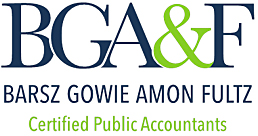On March 29, 2023, the Internal Revenue Service (IRS) issued Revenue Ruling 2023-02, which clarifies the treatment of assets in irrevocable grantor trusts for tax purposes.
What is Section 1014?
Section 1014 of the Internal Revenue Code outlines the rules related to the stepped-up basis of inherited property. When someone inherits property, the value of that property is generally “stepped up” to its fair market value at the time of the owner’s death. This means that the new owner’s tax basis for the property is equal to the fair market value at the date of death rather than the property’s original purchase price.
For example, John purchases a house for $250K. John passes away and, in his will, leaves the asset to his daughter Julie. The house’s fair market value at the time of John’s death is $500K. Under Section 1014, Julie’s tax basis in the house is $500K rather than $250K. If Julie sells the house in the future, she will owe taxes on the sale price minus the tax basis of $500K (assuming the sale amount is greater than $500K).
What is Revenue Ruling 2023-02?
Revenue Ruling 2023-02 addresses the situation where a person creates an irrevocable grantor trust, gifts an asset to the trust so that the asset is no longer included in their gross estate for federal estate tax purposes, and then dies.
Revenue Ruling 2023-02 confirms that the basis adjustment under Section 1014 generally does not apply to assets held in an irrevocable grantor trust that is not included in the deceased grantor’s gross estate for federal estate tax purposes. In simpler terms, the assets gifted to an irrevocable grantor trust by a completed gift will not receive a step-up in basis if those assets are not part of the grantor’s gross estate for tax purposes.
The reasoning is that the trust assets are not considered to be acquired or passed from a decedent by bequest, devise, inheritance, or otherwise within the meaning of Section 1014(b). Therefore, Section 1014(a) does not apply, and the basis of the asset is not adjusted to its fair market value on the date of the original owner’s death.
Why is this ruling important?
This ruling is relevant for wealthy individuals, such as successful business owners, who use advanced estate planning strategies. By clarifying the treatment of assets in irrevocable grantor trusts, Revenue Ruling 2023-02 closes a loophole.
As the IRS continues to crack down on tax avoidance strategies, taxpayers must stay informed of tax law changes and work with experienced professionals to ensure compliance with all applicable tax regulations.
This article provides a brief overview of Revenue Ruling 2023-02 and is not a substitute for speaking with one of our expert advisors. If you have questions or would like to discuss your estate planning, please get in touch with our office. We’d be happy to discuss your unique situation.
